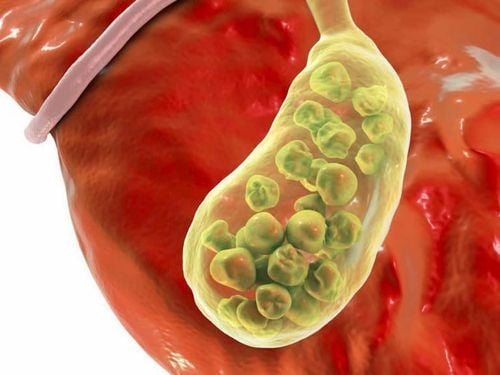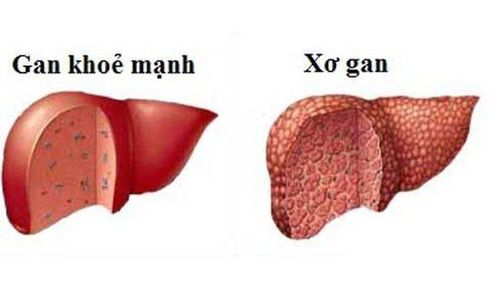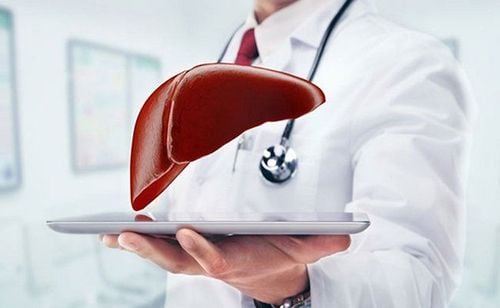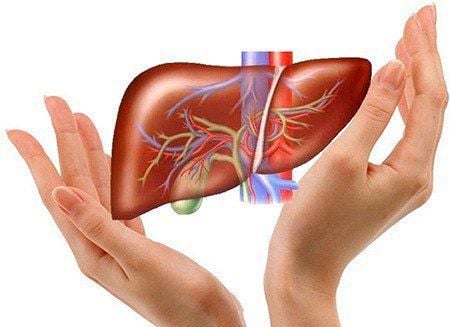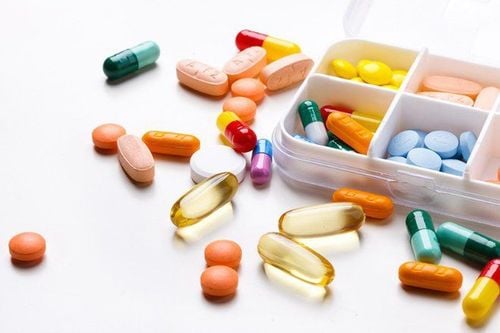This is an automatically translated article.
A good liver, your overall health is preserved. Therefore, "how to keep the liver healthy" is a matter of concern in the current period of social development. Here are the answers to help you know what to take care of and what to eat for a healthy liver.
1. How to keep the liver healthy?
1.1. Maintain a healthy lifestyle for a healthy liver Have a healthy diet The liver is the largest organ in the body belonging to the digestive system. Your liver breaks down all kinds of food, removes toxins, and detoxifies alcohol and drugs. In fact, it does about 500 important jobs, including regulating cholesterol levels, and making protein and bile, which are essential for the digestion of fats - carbs and protein.
So what is the way to keep the liver healthy? One of the best ways to keep your liver healthy is to have a balanced diet low in trans fat and fructose (as in "high-fructose corn syrup"). These substances are found in many processed foods, including chips, soft drinks, fried foods, etc., and both have been shown to contribute negatively to liver function.
Your best way to maintain liver health is to minimize your consumption of processed and prepackaged foods, and to make foods from scratch with fresh ingredients whenever possible.
It is recommended to follow a diet rich in fruits and vegetables from all colors of the rainbow, helping to ensure you are getting all the nutrients and fiber you need.
Consider choosing organic foods Organic foods are produced using a minimum of pesticides in the case of production, with no added hormones or antibiotics in the case of animal products. This will help your liver filter out fewer chemicals and additives.
But it's important to note that organic foods can still contain some residual pesticides, researchers still don't know how much of these health benefits they offer. However, if you can afford to go organic, it certainly won't harm your liver and help the environment.
Drink coffee A recent study published in the journal Hepatology found that coffee drinkers, including decaf, were up to 25% less likely to have abnormal liver enzyme levels. Researchers still don't know why this is the case, but drinking coffee can help keep your liver healthy and functioning better.
Regular exercise Regular exercise will maintain a healthy body weight and help keep the liver healthy. Studies have shown that just 150 minutes of activity per week (i.e. just 1/2 hour, five days per week) is enough to improve liver enzyme levels and overall liver function. It may also reduce the risk of developing fatty liver disease.
When you stick to your exercise regimen, you not only burn more calories, but also help control your weight; It also helps you burn triglycerides for fuel, which can help reduce fatty liver disease.
All in all, regular exercise helps prevent obesity and various chronic diseases, and boosts your mental well-being and overall well-being.

Tập luyện thể dục đều đặn có thể giúp gan khỏe mạnh hơn
Quit smoking Many studies have shown that smoking significantly increases the risk of both cirrhosis (scarring) of the liver and liver cancer.
Skip Herbal Liver Remedies Popular liver remedies like milk thistle, turmeric, and astragalus don't have much research behind them. Colloidal silver, which is sometimes used (with little scientific support) for hepatitis C, can cause irreversible side effects like turning your skin blue. Tell your doctor about all medications, herbs, and supplements you use. First, check the safety of each item, as well as how they might interact with each other.
Protect yourself from hepatitis Hepatitis is an inflammation of the liver usually caused by a virus. There are 3 main types of hepatitis: A, B, and C, all of which are contagious, but hepatitis C is usually only spread by sharing intravenous needles. There are vaccines for hepatitis A and B, so everyone needs to be proactive about getting vaccinated. In addition, you should practice good hygiene, practice safe sex, do not share needles, inject drugs or come into contact with other people's blood.
1.2. Avoid substances that are harmful to the liver Moderate alcohol consumption When your liver processes alcohol, certain harmful chemicals are released that can harm the liver. Alcoholic liver disease is the result of excessive alcohol consumption and is responsible for up to 37% of all liver disease deaths. Regular alcohol consumption can also lead to a condition called fatty liver disease. One thing you may not know, however, is that the liver has a better ability to regenerate itself than any other organ in the body, and alcohol-induced liver problems can often be prevented, or even reverse.
If you've been drinking a lot, stop drinking altogether. Your liver needs 2 weeks without alcohol to begin the healing process.
Then try not to regularly exceed 3-4 units of alcohol per day (equivalent to 1.5 liters of beer) if you are male and 2-3 units per day (1 liter of beer) if you are is a woman
Precautions for Acetaminophen (Tylenol) Most people consider the over-the-counter pain reliever Scetaminophen to be a safe, almost benign drug. However, acetaminophen overdose is a common cause of liver damage and is responsible for the deaths of about 1,000 people each year in the United States alone, most of which are accidental. Remember that acetaminophen is a medicine and should be used only as directed.
Caution when taking prescription drugs All medications put a strain on the liver, as it has to work overtime to metabolize the drug and filter out any excess toxins. However, some drugs can put undue stress on the liver and cause damage, especially when mixed with other substances. Drugs that can potentially cause liver damage include Statins (a cholesterol medication), Amiodarone, and even some antibiotics like Augmentin that are commonly prescribed.
Always take these and other medicines as directed, and ask your doctor or pharmacist before mixing prescription drugs with any over-the-counter medicines, vitamins, supplements, or alcohol.
Not all antibiotics have the risk of harming the liver, but it is best to avoid alcohol while taking them to help your body recover quickly.
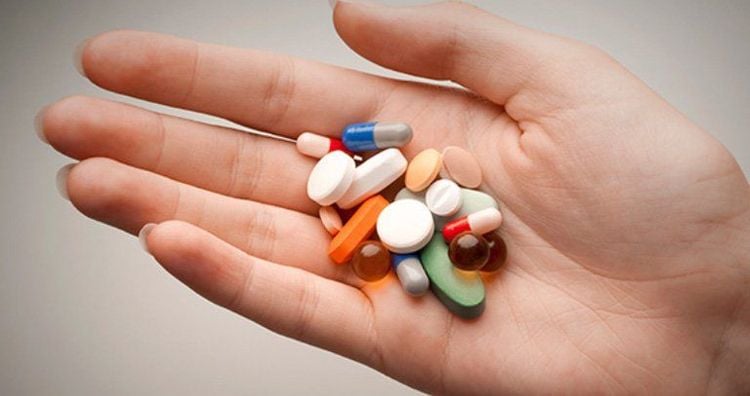
Để gan khỏe mạnh thì bạn nên thận trọng với một số loại thuốc
Avoid exposure to other toxins Factors that can increase the risk of developing liver disease are exposure to pesticides, heavy metals and even environmental toxins found in polluted air and water. . Avoid unnecessary exposure to these toxins and use proper safety equipment if you can't. Try to use natural cleaning products in your home to limit your exposure to chemicals. Consider using indoor air and water filters to reduce your exposure to environmental toxins.
2. Know the signs of liver failure
2.1. Learn to recognize the symptoms of liver disease Because the liver works so silently, many people don't realize they have liver damage or disease until it becomes quite serious. Here are some typical symptoms of liver disease, which usually come on over time. If you experience some or all of these symptoms, especially jaundice, see your doctor and explain your concerns right away:
Loss of appetite; Nausea and vomiting; Diarrhea; Dark urine and pale stools; Pain in the right upper quadrant of the stomach; Jaundice and/or yellowing of the whites of the eyes 2.2. Learn to recognize the symptoms of acute liver failure Acute liver failure can happen very quickly in an otherwise healthy person and is often not recognized until serious damage has occurred. If you or someone you know suddenly develops some or all of the symptoms below, especially jaundice (yellowing of the skin or eyes), unusual tiredness, disorientation, or unexplained fatigue , go to the doctor immediately. Symptoms of acute liver failure include:
Jaundice and/or yellowing of the whites of the eyes; Pain in the upper right abdomen; Abdominal distension; Nausea; Vomiting; Discomfort: a general feeling of well-being; Disorientation or confusion; Unusual sleepiness. 2.3. Liver function tests Due to the gradual and insidious nature of liver symptoms, you may need to be proactive in getting your liver health checked. If you have reason to suspect that your liver has been damaged continuously by alcohol and drug abuse, possible exposure to viral hepatitis, family history of liver disease, etc., make an appointment with doctor and order periodic liver function tests (LFT).
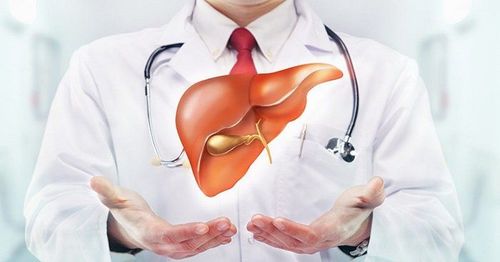
Kiểm tra chức năng gan giúp bạn kiểm tra gan khỏe mạnh hay không
2.4. Check for liver damage It is especially important for your doctor to do this if you drink a lot or have a family history of liver disease. Early treatment helps and you may not have symptoms at first. You should also get tested if you are more likely to get hepatitis C. This includes anyone:
Pregnant; Over 18 years; Are on hemodialysis; HIV infection; Have ever used illegal injecting drugs; Trapped by an infected needle; Born between 1945 and 1965; Had a blood transfusion or an organ transplant before 1992; Receiving clotting factor concentrates taken before 1987; Have had abnormal liver tests or liver disease. In short, the liver plays an extremely important role in feeding the body. Therefore, everyone should know how to take care to help the liver stay healthy.
Please dial HOTLINE for more information or register for an appointment HERE. Download MyVinmec app to make appointments faster and to manage your bookings easily.
Reference source: webmd.com, wikihow.com




